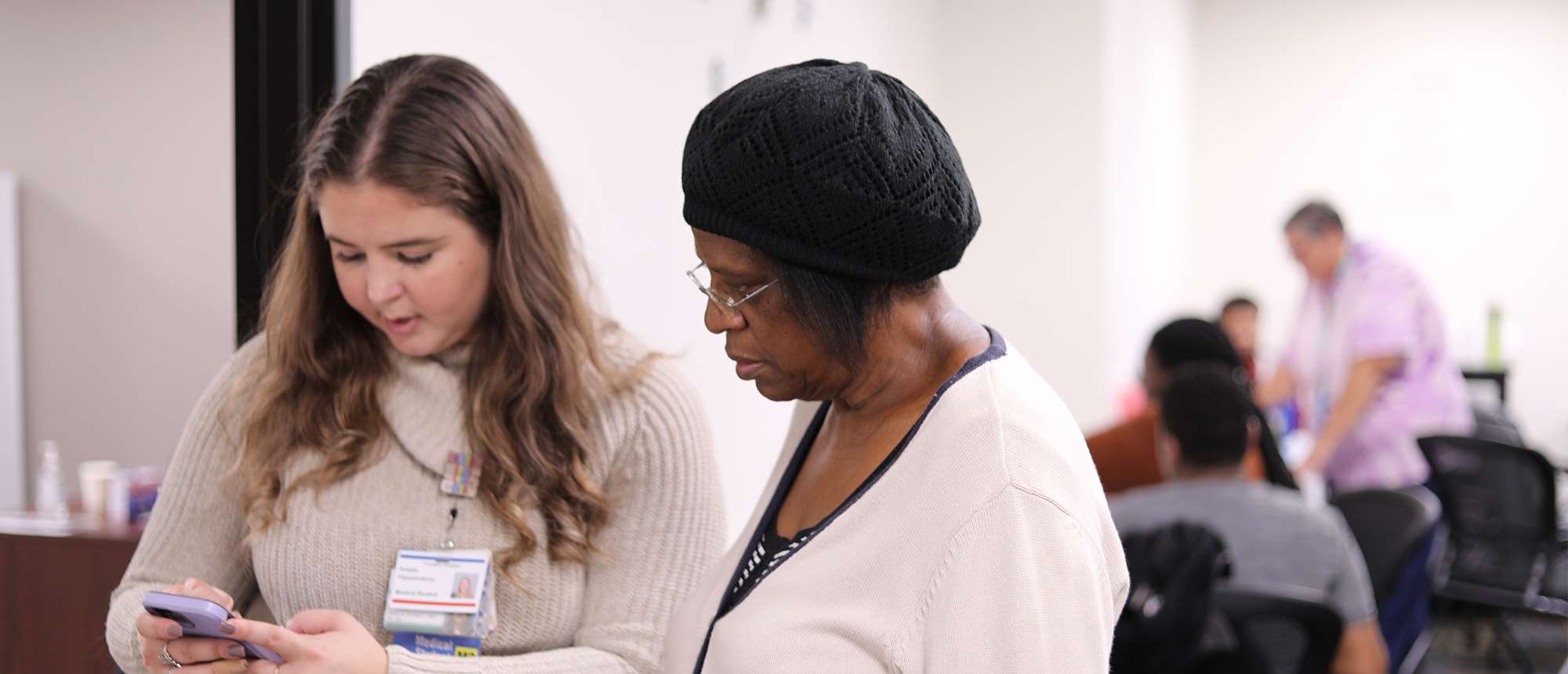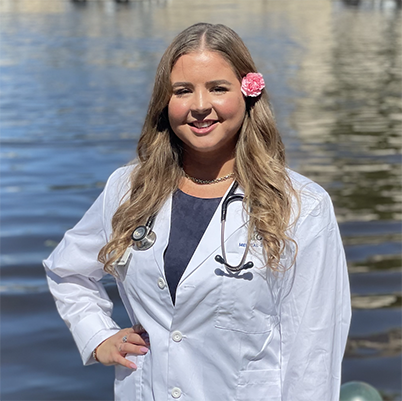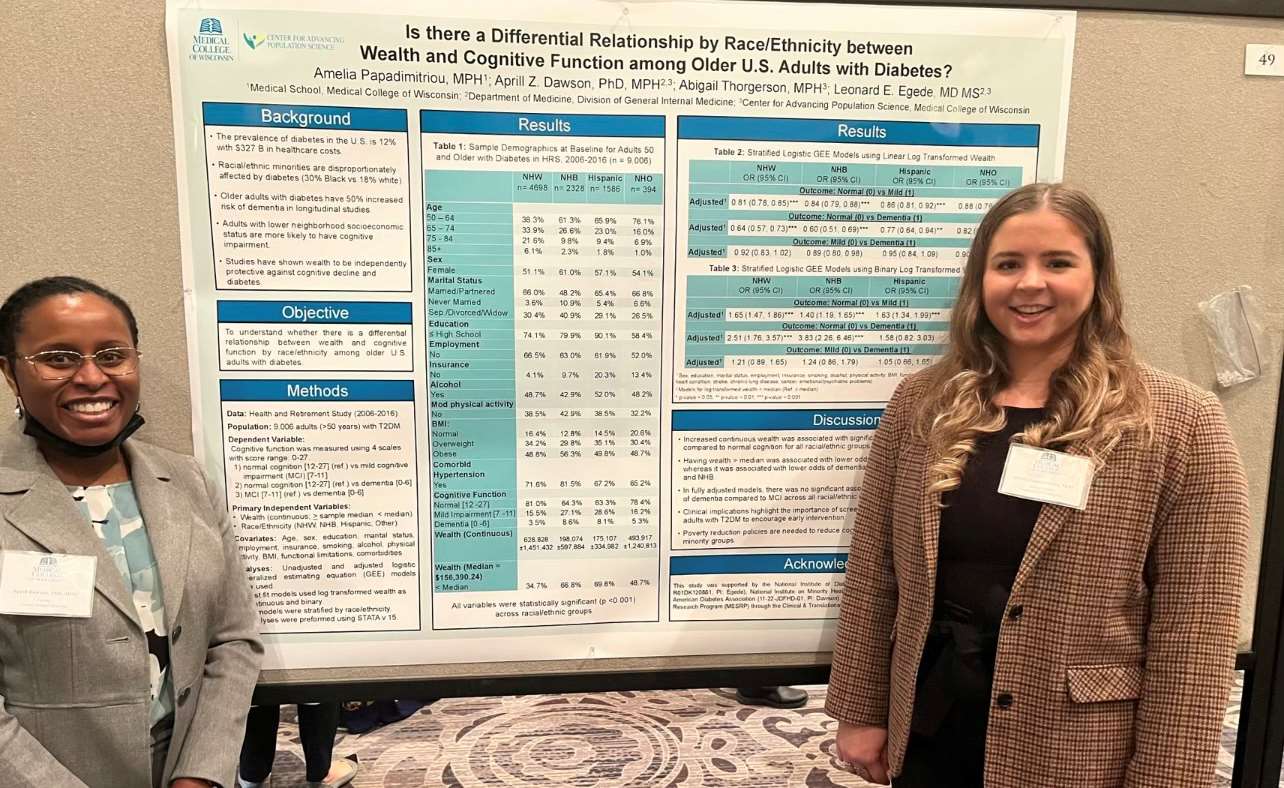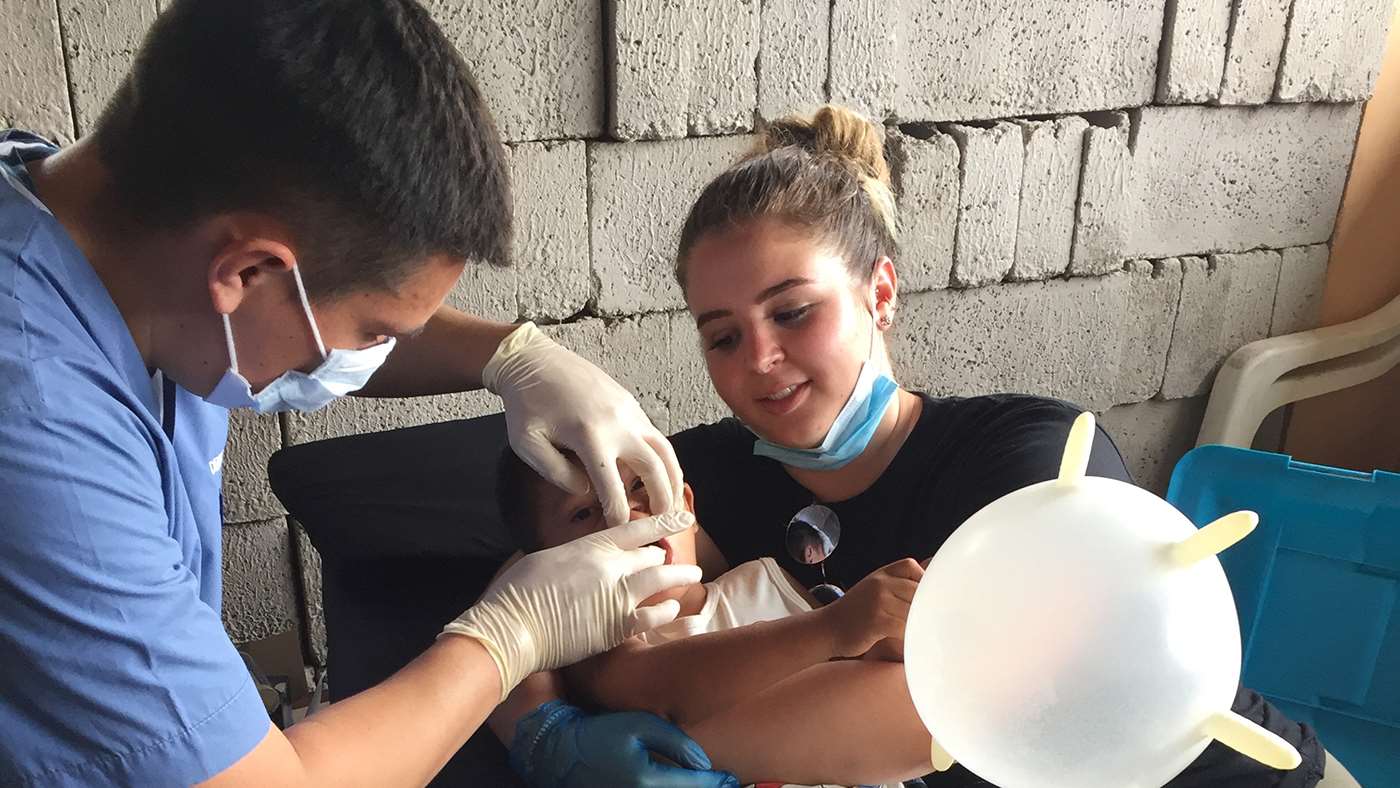MCW Student Working to Bridge Digital Divide in Communities Where Lack of Internet Access Can Cause Health Inequities

Amelia Papadimitriou knows what she wants to accomplish throughout her career.
“My mission is to advance health equity,” says Papadimitriou, a third-year medical student at the Medical College of Wisconsin (MCW) who plans to focus on emergency medicine. “It’s my passion, my purpose, my why.”
 That passion has taken her across the globe, from her home in Montréal, Canada, to Puerto Rico, Peru and Ecuador, to New York City and now Milwaukee. Originally interested in global health, her experiences as a Master of Public Health student working for the New York City Department of Health during the height of the COVID-19 pandemic and now as a medical student in Milwaukee have taught her that health care challenges she witnessed abroad are also prevalent in the US.
That passion has taken her across the globe, from her home in Montréal, Canada, to Puerto Rico, Peru and Ecuador, to New York City and now Milwaukee. Originally interested in global health, her experiences as a Master of Public Health student working for the New York City Department of Health during the height of the COVID-19 pandemic and now as a medical student in Milwaukee have taught her that health care challenges she witnessed abroad are also prevalent in the US.
“I realized that a lot of health disparities I saw in low-income countries in the Global South also exist here right in our backyard,” Papadimitriou says. “Milwaukee is like a perfect laboratory for that.”
Accessing the internet=accessing higher levels of health
Papadimitriou witnessed several issues in both New York City and Milwaukee that resulted in poor health outcomes. She mentions social determinants of health like historical redlining, systemic disinvestment, mistrust of the health system within communities of color, and limited access to health care.
“Health inequities impact historically marginalized populations and structurally disadvantaged communities who are disproportionately low-income and communities of color,” she says. “Milwaukee is an example of that.”
Papadimitriou believes that one of the ways to improve the health care system in cities like Milwaukee is to increase access to the internet, a human right and super social determinant declared by the World Health Organization, and subsequently increase access to telehealth for marginalized populations.
Papadimitriou is involved with an initiative called Link Health, a program of A Healthier Democracy, which closes the gap by helping patients gain internet access through the Affordable Connectivity Program (ACP). Part of the 2021 Infrastructure Investment and Jobs Act, the ACP provides a subsidy of up to $30/month for lower-income households and a one-time $100 subsidy, which helps individuals obtain and pay for broadband internet services.
“Link Health looks to close the digital divide by partnering with community health centers, medical students, doctors and other volunteers. Its model could be trialed in other cities like Milwaukee, perhaps even to the point where hospital staff are automatically notified that a patient does or does not qualify for the ACP after their insurance status is known,” reads part of an op-ed Papadimitriou wrote that was published in the Milwaukee Journal Sentinel.
Papadimitriou’s team, led by Dr. Alister Martin, conducted research featuring heat maps showing people who are eligible but haven't yet signed up for the ACP. The lack of awareness of this resources within communities that could otherwise benefit can be linked to poor health outcomes. She is also working to collect stories from historically excluded populations, including Indigenous peoples and military veterans, to elevate their voices about how the ACP has helped them, and encouraging health systems to become more aware of the ACP. One big win recently, she says, is that Link Health’s resources and materials are now distributed at MCW’s Saturday Clinic for the Uninsured (SCU).
Promoting Resources for Vulnerable Populations
Papadimitriou, who volunteers at the SCU and is part of its Board of Directors’ Advisory Committee, encourages the clinic to talk with patients about the ACP and other federal and local programs, while also translating for those who are not fluent in English.

“I’ve connected with people recently arrived from Congo and Senegal in French and utilize my Spanish with folks in Milwaukee who don’t have health insurance,” she shares. “Being able to communicate sensitive information in your preferred language is very important, and patients who are already in a vulnerable position are extremely grateful.”
Papadimitriou also has been involved in the MCW Urban Community Health Pathway, which has helped to scale up the Health Equity Thread in the new MCWfusion curriculum, and participated in health equity research and community engagement events with the MCW Center for Population Science, which allowed her to continue health disparities work she began as a master’s student.
Much of Papadimitriou’s passion revolves around using education, community organizing and advocacy as tools to increase health equity. Being from Canada, which has universal health care, she says, pushed her to learn more about comparative health systems and how federal programs such as Medicaid work.
“I find myself conversing with colleagues here at MCW about what is Medicare versus Medicaid as well as the importance of health care policies and their influence on how we practice medicine and address patients’ social risk factors,” she says.
Papadimitriou says she is excited to see MCW becoming more and more dedicated to its values of caring, inclusivity, integrity and respect through community engagement and health equity initiatives.

“MCW as a school is trying to define its values and is incorporating health equity more and more,” she says.
Motivated by mentorship and empathy
She credits several mentors at MCW – Dr. Joni S. Williams, Dr. Ann Maguire and Dr. John Hayes – with supporting her studies and future goals related to health equity. It is thanks to their support that Papadimitriou has recently had the honorable opportunity to be part of initiatives on an national level including the American College of Physicians’ Council of Student Members and Health and Public Policy Committee, as well as the Association of American Medical Colleges’ Action Ambassadors, a program for medical students and residents who are passionate about engaging local, state and federal legislators in policy priorities that impact the health care system and health of communities.
“I’m grateful for mentors at MCW who keep me going even though sometimes I feel like the challenges and the mountains to climb are too hard or too high to climb,” she says.
As far as future goals, Papadimitriou says she wants to continue her advocacy work.
“I envision myself being involved for sure in public health research as well as health policy work in addition to clinical practice, where I can hopefully advocate for patients on an individual level and empower them to live healthier lives,” she says.
“I think the role of being a physician is having the privilege to connect empathetically with people during a very vulnerable time of their lives, but I also think it is our duty as physicians to leverage our power as leaders to make the world a better place or at least have a social justice collective mindset,” Papadimitriou concludes. “Despite our differences, the thing that humbly ties us together as humans is our relationship with health. That’s a right worth fighting for and what keeps me going.”
If you or someone you know would like more information or to learn how to enroll in the Affordable Connectivity Program in Milwaukee County, visit Milwaukee’s ACP website.
Learn more about the health impacts of A Healthier Democracy and Link Health.



